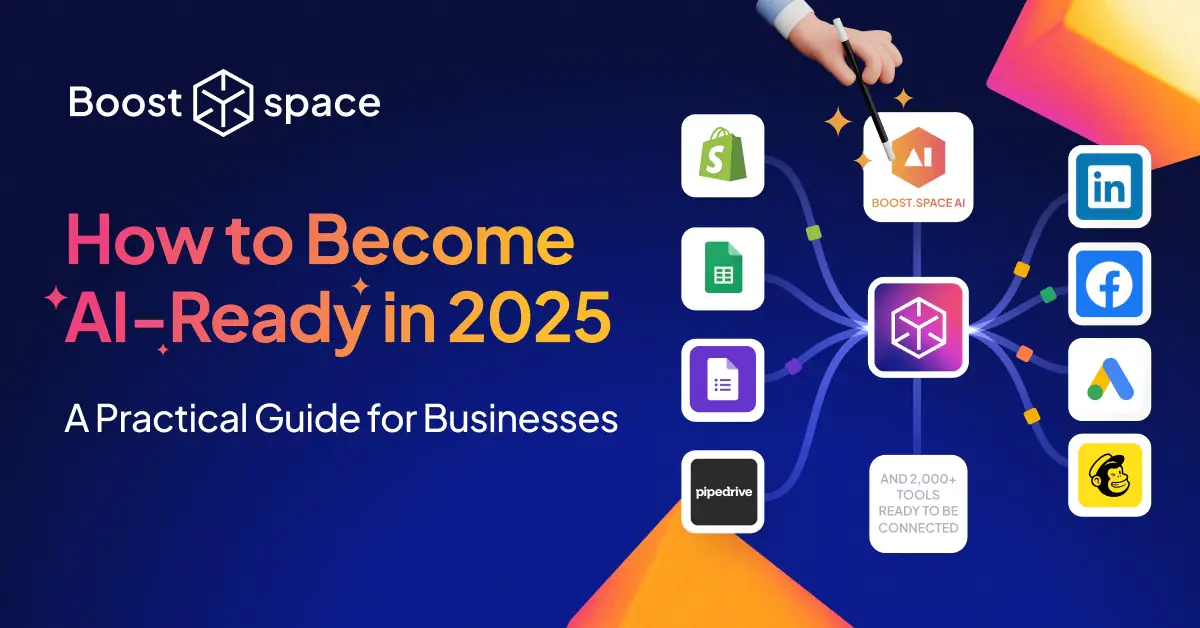© ROOT-NATION.com - Use of content is permitted with a backlink.

As we approach 2025, the importance of AI-ready data has become increasingly evident. Organizations worldwide are recognizing that the success of their AI initiatives hinges not just on adopting the latest technologies, but on having data that is properly prepared and structured for AI consumption. This article explores the critical aspects of AI-ready data and how businesses can prepare for the AI-driven future.
What Makes Data AI-Ready?
AI-ready data possesses several key characteristics:
- High quality and accuracy
- Structured format for easy processing
- Comprehensive coverage of relevant aspects
- Timeliness and relevance to current contexts
- Strong data integrity and security
Recent studies indicate that up to 80% of AI projects fail due to poor data quality and insufficient understanding of AI’s data requirements. This underscores the critical need for businesses to prioritize data readiness as they embark on their AI journeys.

The Three Pillars of AI Readiness
Boost.space, a leading platform in AI ready data solutions, identifies three crucial pillars for organizations aiming to leverage AI effectively:
- Cloud Data Management: Centralizing data from multiple sources into a Single Source of Truth (SSOT) ensures consistency and reliability for AI-driven processes.
- Seamless Integration: Connecting enterprise applications with advanced AI models like GPT, Claude, and Gemini allows for real-time data utilization.
- Built-in AI Features: Integrating AI directly with centralized business data enables more accurate insights and decision-making.
Steps to Achieve Data Readiness
To prepare data for AI integration, organizations should focus on the following steps:
- Conduct a Data Audit: Assess the current state of your data, identifying gaps and areas for improvement.
- Invest in Data Management Tools: Utilize platforms that facilitate data quality, integration, and governance.
- Foster a Data-Driven Culture: Encourage all members of the organization to value data and prioritize data management practices.
- Train and Empower Teams: Provide training and resources to ensure that teams have the skills and knowledge to manage data effectively.
- Implement Continuous Monitoring: Regularly monitor data quality and governance practices to ensure ongoing readiness.
- Transform Raw Data: Convert unstructured or semi-structured data into appropriate formats for AI algorithms to process efficiently.
- Handle Missing Values and Duplicates: Address incomplete information and remove duplicate entries to maintain data integrity.
- Scale and Normalize Data: Standardize feature scales to reduce biases within models.
Building the Data Infrastructure for AI
A modern data infrastructure for AI should improve the performance of AI models and help achieve organizational goals with:
- Data architecture supporting diverse data types and sources
- Low-latency storage
- Data pipelines with real-time data ingestion
- Clean, high-quality data for training
- APIs for data exchange
- Scalability to meet changing AI requirements
- Robust data governance, privacy, and security measures
The Importance of Data Readiness in 2025
As we look towards 2025, data readiness will remain a top priority for organizations implementing AI solutions. Here’s why:
- Enhanced AI Performance: High-quality, well-prepared data leads to more accurate predictions and improved outcomes.
- Competitive Advantage: Organizations with AI-ready data can respond quickly to changing market conditions and customer needs.
- Cost Efficiency: Investing in data readiness can lead to significant cost savings by streamlining data management processes and preventing errors.
- Improved Customer Experience: Well-prepared data enables more personalized and effective customer interactions.
- Compliance and Governance: With increasing regulations around AI use, having well-governed and ethically managed data will be crucial.
- Innovation Catalyst: Quality data is a competitive advantage, enabling the creation of unique generative AI experiences and advancing innovation.
Conclusion
As we approach 2025, it’s clear that AI readiness, particularly in terms of data preparation, will be a key differentiator in the business landscape. Organizations that successfully prepare their data and infrastructure for AI will unlock significant benefits, including enhanced automation capabilities, more intelligent insights from data analysis, and substantial productivity gains across departments.
The message is clear: don’t wait until AI forces your business to change. Start preparing your data and infrastructure now to stay ahead of the curve and turn your data into your biggest competitive advantage. By focusing on data readiness, organizations can ensure they are well-positioned to leverage the full potential of AI in 2025 and beyond.

